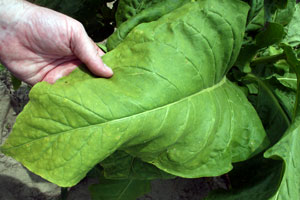Tobacco for vaccine production

Mitsubishi Tanabe Pharma of Japan is developing a process that uses tobacco leaves to produce influenza vaccines within one month—a sixth of the time typically needed, reports the Nikkei Asian Review.
The technique will be put into commercial use in fiscal 2018 or 2019. Mitsubishi Tanabe has all but finished verifying the safety and effectiveness of the vaccines in the U.S. and Canada. The inoculations are set to undergo final clinical trials in the U.S. by the end of this year.
If the firm meets its profitability goals, it will consider expanding the project into Asia, according to company President Masayuki Mitsuka.
Normally, the flu viruses used for vaccines are cultured using chicken eggs. Those viruses are made inactive before injection. However, the approach takes half a year to produce vaccines, making it difficult to create the most effective vaccine for a particular flu season.
Mitsubishi Tanabe will use technology developed by Canada’s Medicago, a company it acquired in 2013. The technology implants genetic material into the leaves that produces flu-like particles containing antigens, which trigger immune responses. Because the particles are not live flu viruses, chances of infection are minimal.
Tobacco is comparatively cheap, grows quickly and produces a sizable yield of leaves, making it an ideal incubator for vaccines.
Clinical trials are also being conducted for bird flu and H7 influenza vaccines produced from tobacco leaves. In addition, the company is developing vaccines for rotavirus and for rabies using the same technique.
